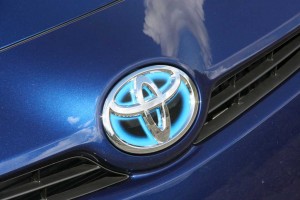Media reports of the death of Toyota are greatly exaggerated, according to the latest research from CNW, the National Automobile Dealer’s Association and AutoTrader.com.
Among the so-called Toyota “Intenders,” 7% now say they will not buy a new Toyota product. Sounds bad, right?
Wrong.
Immediately after its latest unintended acceleration recall last month, the intender number was down 18% — so potential buyers are already drifting back.
CNW interprets its survey this way: long-time Toyota owners consider this a major issue, but the faith in the brand is still strong. The vast majority will not abandon Toyota models because of the recalls.
While Ford, Honda and Hyundai have become stronger on Toyota-product shopping lists, none of them displaced the Toyota product in question from its number one position as the preferred choice. So maybe in short term, Toyota will have to work harder to retain these customers and close sales to prevent inroads by competitors.
Looking at another data source, Toyota’s recall problems also did not impact car shoppers’ searches for Toyota vehicles in January when compared to activity on AutoTrader.com in December of 2009 or the previous January.
Compared to December 2009, most new and used Toyota models on AutoTrader.com maintained their rankings or moved down only one spot. The used Toyota Camry actually saw an increase in searches on AutoTrader.com in January 2010 compared to December 2009, moving the car up from No. 23 in December 2009 to No. 19 in January.
On January 26, Toyota Motor Sales suspended sales of the eight Toyota models involved in the accelerator pedal recall, negatively affecting Toyota’s January sales. The eight models represented more than 60% of Toyota’s inventory at the time.
It’s true that the stop sale of Toyota products in January allowed Ford to displace it as the Number Two automaker in the U.S., but it won’t be clear how wounded the brand is until February sales or first quarter sales are reported.
Therefore, I say here come incentives, which will be done with dealer cash on a regional basis to limit stories about how much money Toyota is putting on the hood to keep sales going. Extended warranties are also a possibility.
Among longer-term new car “intenders,” those who do not plan to buy a new vehicle for at least a year, Toyota cars have slipped on their consideration list from 19% in February 2009 to 11% percent in February 10, 2010.
In the case of used car sales, CNW claims that Toyota was down more than 39% the first three days after the recall was announced, but attributes it to private party and independent used car dealers not having access to the repair parts. At the end of last week, sales of used Toyotas were off only 11% — and that percentage appears to be “trending downward.”
The National Automobile Dealers Association, which closely monitors used car prices, says Toyota values are expected to experience above-average deterioration during the next six months and settle in at a lower premium, compared to substitute models with comparable quality. Therefore, there is more opportunity for Toyota to put incentives on trade-ins here.
CNW’s conclusion: Toyota is a broad-based brand with millions of loyal owners and a variety of products that can keep the brand afloat, even if Camry is damaged.
In passing, the company notes that the Audi unintended acceleration controversy and the Suzuki Samurai rollover cases, which effectively killed the brands for a long time if not limiting them forever in the U.S., both affected were small brands with few offerings.
Toyota’s situation is more akin to Ford’s Pinto fuel tank fiasco, claims CNW, where courts found Ford responsible for the exploding small car. Ford dumped Pinto after a disastrous trial and did not take a significant sales hit in the longer term. The same can be said about the Firestone tire recall at Ford.

